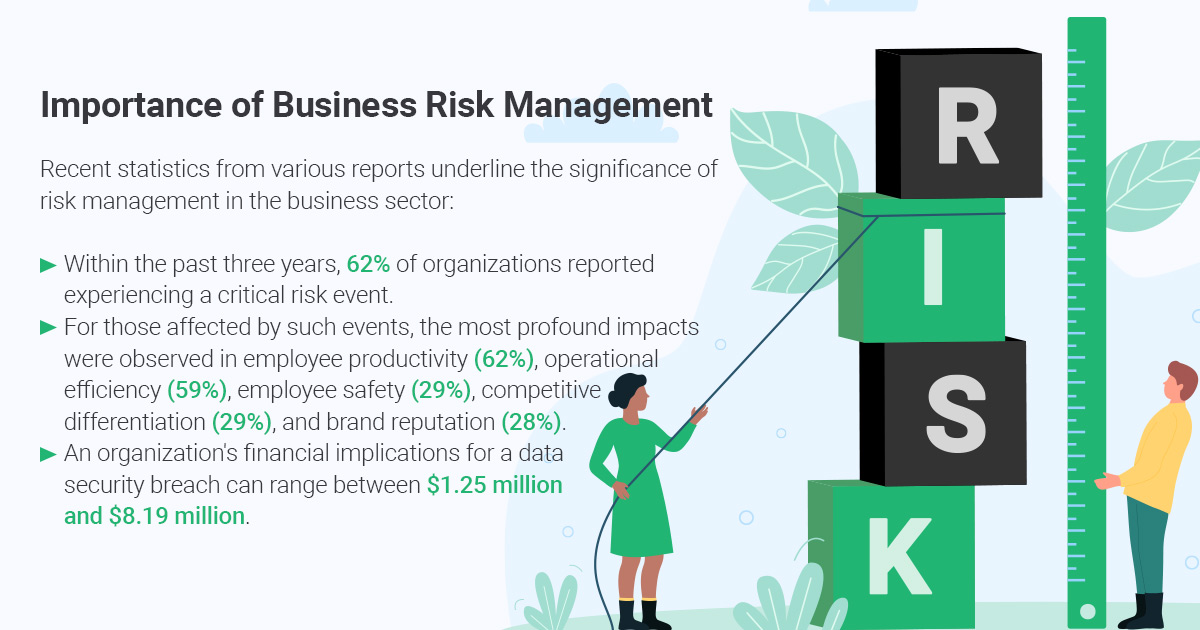A Comprehensive Guide to Understanding the Importance of Risk Management
The Vital Relevance of Risk Management in Getting Organizational Objectives
In the quickly advancing company landscape, the capability to navigate unpredictability has actually come to be a crucial. This is where Risk Management action in, giving a structured technique to recognizing, evaluating, and mitigating prospective barricades to proceed. It's even more than just a protective action - it's a strategic tool, promoting strength and technology. As we explore the vital duty of Risk Management in achieving organizational goals, one can not aid however wonder: how does this equate into real-world success?
Comprehending the Concept of Risk Management in Business

The Important Duty of Risk Management in Strategic Planning
Integrating Risk Management right into critical planning acts as a guard for organizations, anchoring their long-term plans with a solid foundation of readiness and durability. Risk Management provides a framework for anticipating unpredictabilities and developing suitable reactions, ensuring the company's survival and success even in the face of hardship. By incorporating Risk Management right into calculated preparation, organizations can change these uncertainties into possibilities for growth and technology.

Methods for Identifying, Assessing, and Prioritizing Dangers
Browsing the complicated landscape of threats calls for the application of details methods for their evaluation, prioritization, and identification. The procedure begins with Risk recognition, using devices such as SWOT evaluation, which assists in identifying possible dangers and opportunities. Next, Risk analysis is carried out to identify the potential effect and probability of each Risk. Tools such as Risk matrices and impact-probability graphes are utilized for this. Finally, threats are focused on based upon their possible effect and probability, enabling organizations to focus their sources on critical risks. This organized technique guarantees a thorough understanding of the Risk landscape, making it possible for organizations to make educated decisions and properly take care of risks to accomplish their goals - importance of risk management.
Securing Organizational Workflow Through Efficient Risk Management
In the business landscape laden with unpredictabilities, reliable Risk Management plays a pivotal role in safeguarding business procedures. By identifying and analyzing possible threats, Risk Management makes it possible for organizations to establish durable contingency plans. Organizations have to spend in extensive Risk Management strategies to secure their procedures.

Converting Prospective Threats to Opportunities: The Power of Risk Management
While possible threats may originally look like obstructions to business success, effective Risk Management can transform them her explanation into possibilities. A proactive method to take the chance of Management involves determining, analyzing, and focusing on risks to create strategies that turn them right into possible advantages. This process requires the advancement of a risk-aware society within the organization, urging people to check out dangers as possible stimulants for adjustment and development, instead of plain hazards. importance of risk management. Via this lens, potential threats become possibilities to innovate, improve procedures, and reinforce strength. Therefore, by leveraging the power of Risk Management, companies can not only guard their procedures however additionally stimulate development and accomplish their goals in an unforeseeable company atmosphere.
Instance Researches: Success Stories of Risk Management Driving Company Objectives
Successful application of Risk Management approaches has actually generated impressive outcomes in various services, emphasizing the qualities of this strategy. Multinational business like Microsoft and Google, for instance, have actually leveraged Risk Management to reduce hazards and make use of opportunities, driving their company goals forward. Microsoft's aggressive Risk Management technique assisted it pivot quickly during the 2020 pandemic, transitioning to remote work efficiently, therefore preserving productivity. Google, by examining and reducing prospective threats this in its cloud-based solutions, has made sure nonstop solution, thus strengthening customer trust. These instances highlight how successful Risk Management can not only guide organizations clear of potential pitfalls but also assist them in the direction of their tactical goals. Hence, Risk Management is integral to the pursuit of organizational goals.
Conclusion
In conclusion, Risk Management is fundamentally vital in achieving business objectives. By incorporating Risk Management into tactical planning, businesses can better navigate uncertainties, secure operations, and capitalise on opportunities, thereby aligning with long-lasting purposes.
At its core, Risk Management is the procedure of recognizing, evaluating, and attending to prospective risks that can negatively impact a company's procedures or purposes. Next, Risk assessment is performed to identify the potential impact and probability of each Risk. Threats are focused on based on their possible influence and possibility, allowing organizations to concentrate their sources on webpage critical dangers. By determining and assessing potential hazards, Risk Management makes it possible for organizations to develop durable backup plans. A positive approach to run the risk of Management includes determining, assessing, and prioritizing threats to design approaches that transform them into prospective advantages.